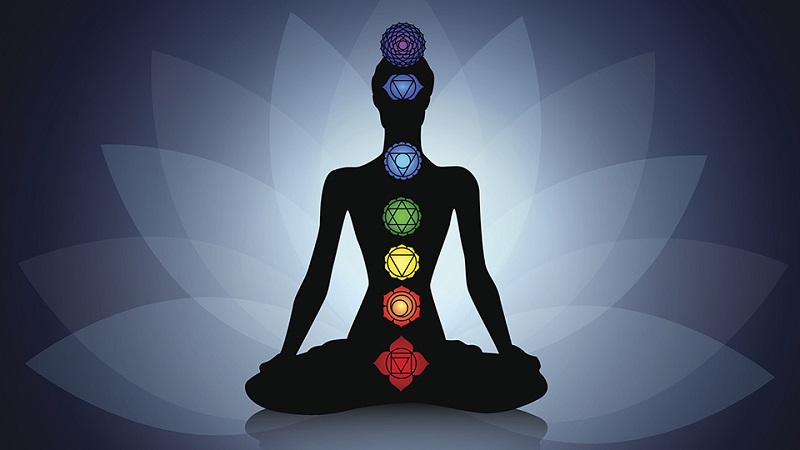What Do You Feel When You Meditate?

Meditation is a practice that has been embraced by individuals worldwide for its numerous physical, mental, and emotional benefits. When you meditate, you enter a state of mindfulness and inner awareness, which allows you to connect with your thoughts, feelings, and surroundings on a deeper level. In this article, we will explore the profound experience of meditation and what one can expect to feel during this calming and introspective practice. The content is developed by myselfimprovementtoday.com
Understanding Meditation
Before we dive into the emotions and sensations one may experience during meditation, it is essential to grasp the fundamental concept of meditation. Meditation is an ancient practice that involves focusing the mind and eliminating distractions, allowing one to achieve mental clarity and inner peace.
Calmness and Tranquility
One of the most common feelings experienced during meditation is a sense of calmness and tranquility. As you sit in a quiet space, focusing on your breath or a specific point of concentration, the mind gradually settles, and a deep sense of peace envelops you. This calmness extends beyond the meditation session, positively influencing your daily life and reducing stress and anxiety. Explore the meditation feelings.
Heightened Self-Awareness
During meditation, you become more aware of your thoughts, emotions, and bodily sensations. This heightened self-awareness enables you to recognize negative thought patterns or triggers, paving the way for personal growth and self-improvement.
Connection with Inner Emotions
Meditation allows you to explore your emotions in a safe and non-judgmental space. You may encounter a range of feelings, including joy, sadness, gratitude, or even frustration. By acknowledging and accepting these emotions, you can cultivate emotional intelligence and better understand yourself.
Enhanced Focus and Concentration
As you consistently practice meditation, you may notice improvements in your focus and concentration. The ability to concentrate on the present moment sharpens, leading to increased productivity in daily tasks and activities.
Reduced Physical Tension
Meditation not only soothes the mind but also relaxes the body. During the practice, you consciously release physical tension, which can alleviate headaches, muscle stiffness, and other stress-related ailments.
Experience of Stillness
In the midst of our fast-paced lives, finding moments of stillness can be rare. Through meditation, you can experience profound stillness within yourself, transcending the noise and chaos of the external world.
Inner Joy and Bliss
As you delve deeper into meditation, you may encounter inner joy and bliss moments. These feelings arise from the connection with your true self, unburdened by external worries and anxieties.
Increased Patience and Equanimity
Meditation nurtures patience and equanimity, helping you respond calmly to challenging situations. With regular practice, you may find that you are less reactive and more composed in the face of adversity.
Heightened Sense of Gratitude
Meditation often leads to an increased sense of gratitude for the simple joys in life. You become more appreciative of the beauty around you and the relationships that bring meaning to your existence.
Deeper Connection with Others
As you cultivate compassion and understanding towards yourself through meditation, you naturally develop a deeper connection with others. Empathy and kindness become integral to your interactions with those around you.
Letting Go of Negative Emotions
Meditation serves as a powerful tool for releasing negative emotions and unresolved traumas. It allows you to confront these emotions, process them, and gradually let them go, freeing yourself from emotional burdens.
Expanded Creativity
The stillness and clarity attained through meditation can unlock your creative potential. Many artists, writers, and innovators credit meditation for enhancing their creativity and bringing fresh perspectives to their work.
Feeling Grounded and Centered
In a chaotic world, meditation provides an anchor, helping you feel grounded and centered. This groundedness becomes a source of strength and stability in various aspects of your life.
Conclusion
Meditation is a transformative journey that holds a multitude of feelings and experiences. As you embark on this path of self-discovery and mindfulness, you may encounter moments of calmness, heightened self-awareness, joy, and a deeper connection with yourself and others. Embrace each step of the process, and with consistent practice, meditation can become a profound and enriching aspect of your life.
FAQs
Is meditation suitable for everyone?
Yes, meditation can be practiced by people of all ages and backgrounds. It is a flexible practice that can be tailored to individual preferences.
How long should I meditate each day?
The duration of meditation varies for each person. Start with a few minutes and gradually increase the time as you feel comfortable.
Can meditation replace professional medical treatment for mental health conditions?
No, meditation should complement professional medical treatment, not replace it. Always consult a healthcare professional for serious mental health concerns.
Can meditation improve my sleep quality?
Yes, meditation can help improve sleep quality by promoting relaxation and reducing stress.
Is it normal to have thoughts during meditation?
Yes, it is entirely normal to have thoughts during meditation. The key is acknowledging them and gently returning your focus to your chosen concentration point.




